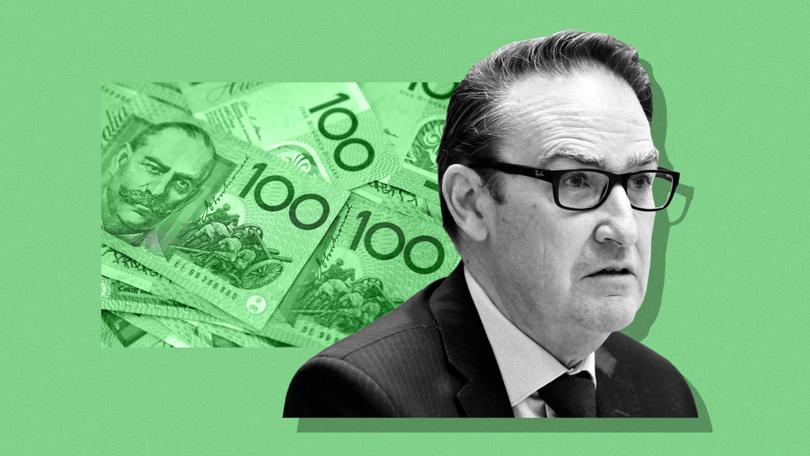Treasury Secretary Steven Kennedy warns of ‘very weak’ growth, says monthly inflation not a particular concern
Australia’s economic growth will be “very weak” as household spending has been crunched from higher interest rates and inflation, Federal Treasury Secretary Steven Kennedy says.

Australia’s economic growth will be “very weak” as household spending has been crunched from higher interest rates and inflation, Federal Treasury Secretary Steven Kennedy says.
Household consumption is one of the key drivers to the economy. Ahead of official figures due to be released on Wednesday for the first quarter of this year, Dr Kennedy told Senate Estimates in Canberra on Monday that household consumption as a contribution to economic economic growth was the weakest in a decade outside the pandemic.
But he has defended increasing government spending, pushing back on suggestions the Federal Budget released last month was expansionary, and an economic risk.
Sign up to The Nightly's newsletters.
Get the first look at the digital newspaper, curated daily stories and breaking headlines delivered to your inbox.
By continuing you agree to our Terms and Privacy Policy.“Part of the government’s macroeconomic management is the crystallisation of a number of spending risks that are now coming home to roost and they need to be addressed,” Dr Kennedy said.
Treasury expects the jobless rate to rise to 4.5 per cent by mid-next year but the secretary noted firms had reduced hours worked rather than cut jobs, delaying an expected rise in the overall unemployment rate.
Inflation on an annualised monthly basis increased to 3.6 per cent in April, but Dr Kennedy said “I have not been particularly concerned by changes in monthly statistics”, implying a preference for quarterly inflation data, next due in July.
Dr Kennedy said stage 3 tax cuts, moderating inflation and increasing wages were expected to bolster incomes, in turn lifting household spending from currently low levels.
“Overall, we expect real GDP to grow by 2 per cent in 2024-25. This is more subdued growth than we expected at MYEFO (mid-year economic and fiscal outlook),” he said.
Other forecasts were also called into question, with Dr Kennedy conceding Treasury had got population growth figures wrong and described the agency’s performance as “frankly poor”.
“We simply underestimated how much students would flow back,” he said. Migration has become a major squeeze on the economy, with the large number of international students attributed with increasing pressure on the rental market.
“While there has been a catch-up in arrivals (compared to pre-COVID), we are yet to see a pickup in departures predominantly because many of the international students who arrived over the past couple of years are still studying and yet to depart,” Dr Kennedy said.
Asked to address intergenerational equity, given spending by older Australians appears to be increasing or holding steady while younger Australians’ spending is falling, Dr Kennedy said a bigger issue was the housing market.
“Young people are not getting the same opportunities that older people had,” he said.
Earlier Dr Kennedy said market supply of housing remained too low to meet demand despite a large number of medium- to high-density dwellings built between 2014 and 2018 due to low interest rates encouraging investor activity.
“A limited supply of dwellings creates affordability pressures for households, and makes it difficult to find a property to buy or rent,” he said. “We have seen declines in the number of house homes being offered for sale since 2015. The number of homes for rent has also been falling since early 2020.”
These trends had implications for affordability and access to housing, he added.
“Households are taking longer to save for a deposit and more people are renting. These impacts are disproportionately felt by those on lower incomes,” he said.
The average time for a new home from approval to completion was now about 12 months, up from nine months in 2019-20, while townhouses were taking about 15 months and apartments 29 months.
